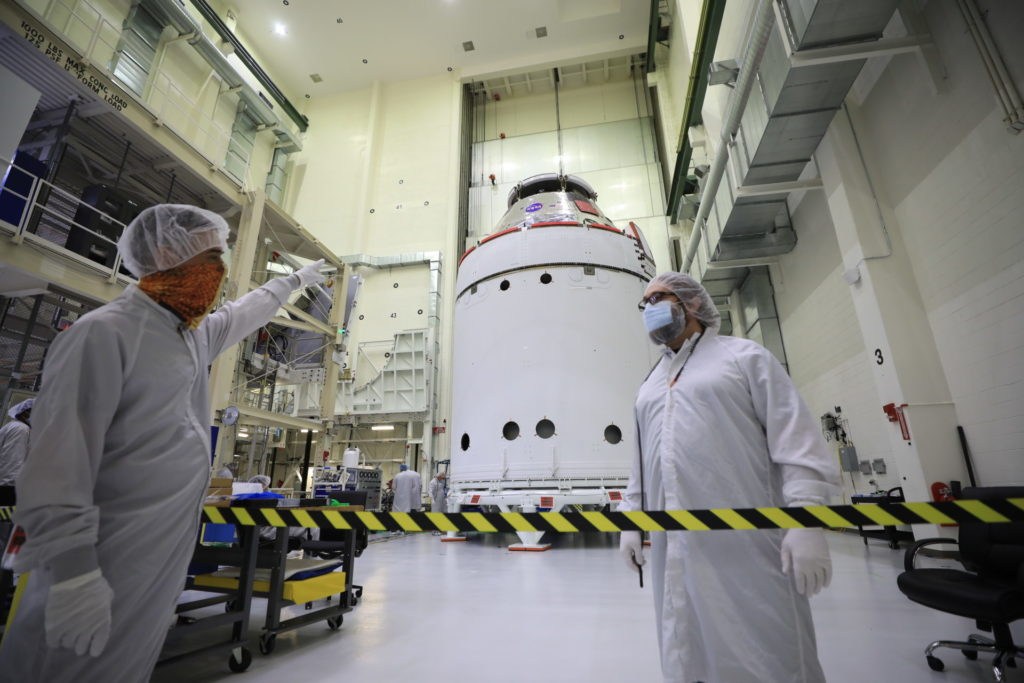The new iteration of the EU Space Programme adopted this week includes funding for space security, like the Space and Situational Awareness (SSA) programme and the new Governmental Satellite Communication initiative (GOVSATCOM).
The SSA provides Europe and its citizens with “complete and accurate information on objects orbiting Earth, on the space environment and on threats coming from space,” according to the European Space Agency (ESA).
“The SSA programme will, ultimately, enable Europe to autonomously detect, predict and assess the risk to life and property due to remnant man-made space objects, re-entries, in-orbit explosions and release events, in-orbit collisions, disruption of missions and satellite-based service capabilities, potential impacts of Near Earth Objects, and the effects of space weather phenomena on space and ground-based infrastructure,” the agency’s website explains.
The new GOVSATCOM initiative refers to Europe’s use of satellite communications for various reasons related to defence, security, humanitarian and emergency responses, and diplomatic communications.
“The space sector and in particular satellite communications are increasingly critical for the EU’s security, prosperity and competitiveness,” ESA says.
“They are a key enabler for civil and military missions/operations, both at national and EU level when supporting the EU’s Common Security and Defence Policy (CSDP).”
The aim of space security programs is to support border protection, civil protection and humanitarian interventions, according to a press release from the European Parliament.
Related News
The €14.8 billion programme covers the 2021-2027 period, and the bulk of the budget will be allocated to Galileo and EGNOS, the EU's global and regional satellite navigation systems, as well as Copernicus, the EU's Earth Observation programme.
“As demonstrated during the COVID-19 pandemic, the application of space technologies can be fundamental for the implementation of public policies and in controlling the outbreak through monitoring and tracking services,” said Italy’s rapporteur Massimiliano Salini.
“By creating the conditions for the development of the space upstream and downstream markets, the EU Space economy will play a pivotal role in the recovery of our Union.”
The programme hopes to strengthen Europe’s strategic autonomy, its security and its role in the space sector, according to the European Parliament.
The European Commission first presented the Space Programme back in June of 2018.
Its purpose was to ensure investment continuity in EU space activities, encourage scientific and technical progress, and support the competitiveness and innovation capacity of the European space industry.
The new agreement will enter into force retroactively on 1 January 2021.

